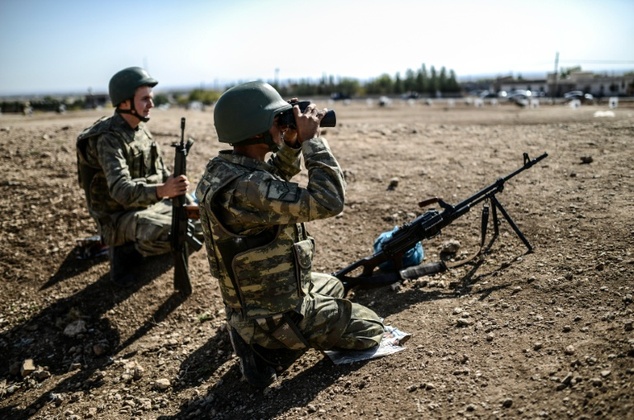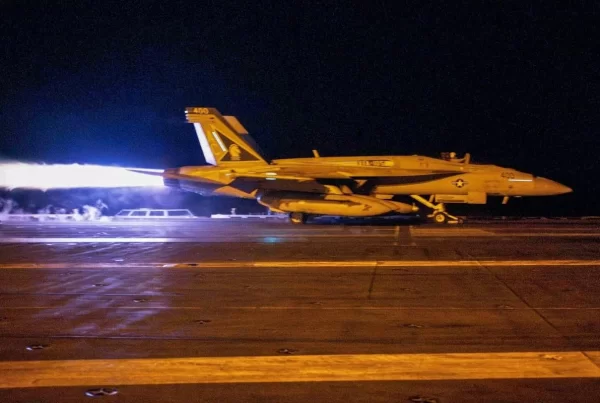Saudi Arabia announced Tuesday the formation of a military coalition of 34 countries to fight “terrorism” in the Islamic world, in the latest sign of a more assertive foreign policy by the kingdom.
The regional Sunni power said the alliance would share intelligence, combat violent ideology and deploy troops if necessary.
“Nothing is off the table. A number of countries are in desperate need of assistance,” Foreign Minister Adel al-Jubeir said.
“Terrorism has hit Islamic countries. It is time that the Islamic world takes a stand,” he told reporters in Paris.
The alliance was announced by Saudi Deputy Crown Prince Mohammed bin Salman, who is also defence minister, on the same day that peace talks between the Yemeni government and Iran-backed rebels began in Switzerland, accompanied by a shaky ceasefire.
Adam Baron, a visiting fellow at the European Council on Foreign Relations, said the coalition fits into “the larger, more assertive policy” of Saudi King Salman and Mohammed, his powerful son.
The prince told a rare news conference that the Riyadh-based coalition will “be a partner in the worldwide fight against this scourge” of terrorism in the Islamic world.
Some coalition members like Nigeria have mixed Muslim-Christian populations, but all belong to the Jeddah-based Organisation of Islamic Cooperation.
They range from the tiny African nation of Guinea to major regional powers including Turkey.
Farea al-Muslimi, a visiting scholar at the Carnegie Middle East Centre, called most of them “honorary members” in a coalition that “seemed to have been cooked at the last minute” without clear goals.
A Western diplomat said responding to Western concerns that Saudi Arabia’s position is “ambiguous or even complicit” with regard to terrorism was one factor behind the coalition.
He said it is also a response to the threat from Islamic State group jihadists, as well as an Iranian effort to make the West think Shiites are “good Muslims” in contrast to Sunnis.
“In the face of the situation, they decided to take the initiative.” the diplomat said.
Turkish Prime Minister Ahmet Davutoglu told reporters in Ankara that his country backed the alliance’s formation.
“Turkey is ready to contribute by all its means to all gatherings that aim to fight terrorism, no matter where or by whom it is organised,” he said.
Sunni Islam’s leading seat of learning, Al-Azhar, urged all Muslim countries to join the coalition, expressing hope that it would defeat the “evils of terrorism”.
– Huge costs –
The coalition will fight “any terrorist organisation that appears”, Mohammed said when asked if it would concentrate only on the Islamic State (IS) group of Sunni extremists in Syria and Iraq.
Saudi Arabia has repeatedly denounced international “terrorism” and has itself seen an upsurge of attacks claimed by IS over the past year, against minority Shiites and members of the security forces.
The kingdom is founded on the teachings of fundamentalist cleric Mohammed bin Abdul Wahhab, whose thought has been accused of fuelling deadly Sunni extremism around the world, including that of IS.
The IS threat “is the most fundamental challenge to Saudi’s raison d’etat and the security of its citizens,” said Andreas Krieg, a professor at the Department of Defence Studies at King’s College London, who also serves as a consultant to the Qatari armed forces.
At the same time, the huge human and financial costs of the kingdom’s military operation in Yemen have become increasingly difficult for it to bear, he said.
“Only joint military operations are a real option.”
In March, the kingdom formed an Arab coalition to support the Yemeni government against Iran-backed Huthi rebels and their allies, who seized much of the country.
– Prominent Saudi role –
Saudi Arabia has also played a prominent role in efforts to find a political solution to the war in Syria.
Last week, it hosted unprecedented talks between opposition Syrian political and military factions.
Muslimi and Krieg did not see the new coalition leading to a more direct Saudi military role in Syria.
Saudi Arabia supports some rebels in Syria, and last year joined other Gulf states in a US-led coalition bombing IS in Syria.
The UAE said two weeks ago that it was ready to commit ground troops against jihadists in Syria, and described Russian air strikes there as attacks on a “common enemy”.
Kremlin spokesman Dmitri Peskov said Russia awaited more details before evaluating the Saudi announcement about the new coalition.






